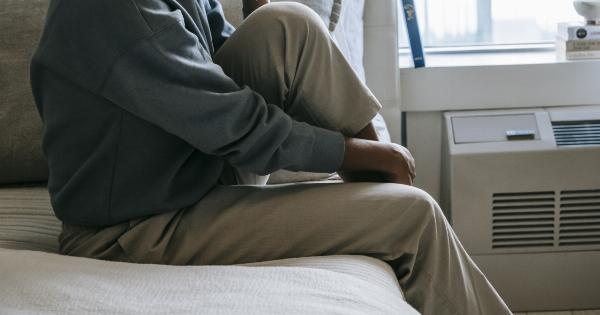Isolation at home has become increasingly prevalent in today’s society, with more and more individuals opting to spend their time alone rather than engaging in social activities.
While some people may enjoy the peace and solitude that isolation brings, research has shown that prolonged periods of isolation can have detrimental effects on both physical and mental health. In this article, we will explore the correlation between isolation at home and health risks, examining the various ways in which isolation can impact an individual’s well-being.
1. Increased Risk of Depression and Anxiety
One of the most significant health risks associated with isolation at home is an increased risk of depression and anxiety.
Lack of social interaction and support can lead to feelings of loneliness and isolation, contributing to the development of mental health issues. Studies have found that individuals who are socially isolated are more likely to experience symptoms of depression and anxiety, as compared to those who have an active social life.
2. Decline in Physical Health
Isolation at home can also negatively impact an individual’s physical health. When we are alone, we are more likely to engage in sedentary behaviors such as sitting for long periods, lack of regular exercise, and poor diet.
These factors can lead to weight gain, increased risk of cardiovascular diseases, and other chronic health conditions. Furthermore, social isolation can disrupt regular sleep patterns, leading to sleep disturbances and fatigue.
3. Weakened Immune System
Research has shown that social isolation can weaken the immune system, making individuals more susceptible to illnesses and infections.
The lack of social interaction can increase stress levels and hinder the body’s ability to fight off viruses and bacteria. Additionally, psychological stress resulting from isolation can also contribute to a weakened immune system, further compromising overall health.
4. Cognitive Decline
Isolation at home can also have negative effects on cognitive function. Regular social engagement has been found to stimulate the brain and improve cognitive abilities.
Without these social interactions, individuals may experience a decline in memory, attention, and problem-solving skills. Studies have also shown that isolated individuals are at a higher risk of developing conditions such as dementia and Alzheimer’s disease.
5. Increased Mortality
Perhaps one of the most concerning health risks associated with isolation at home is an increased risk of mortality. Research has found that individuals who are socially isolated have a higher chance of premature death.
This increased mortality risk is comparable to the risk associated with smoking, obesity, and other unhealthy behaviors. Social isolation can lead to poorer health outcomes, untreated medical conditions, and a decreased sense of purpose and belonging.
6. Impact on Mental Well-being
In addition to depression and anxiety, isolation at home can have a significant impact on an individual’s overall mental well-being. Lack of social interaction can lead to feelings of loneliness, boredom, and alienation.
These negative emotions can further contribute to the development of mental health issues such as low self-esteem, decreased self-worth, and even suicidal thoughts. It is essential to recognize the importance of social connections in maintaining optimal mental health.
7. Effects on Sleep Quality
Another health risk associated with isolation at home is the effects on sleep quality. Social interactions and engagement play a crucial role in regulating our sleep-wake cycles.
Lack of social stimulation can lead to irregular sleep patterns, insomnia, and restless sleep. Poor sleep quality can have a cascading effect on overall health, contributing to fatigue, increased risk of accidents, and impaired cognitive function.
8. Impact on Cardiovascular Health
Isolation at home can also impact an individual’s cardiovascular health. The lack of physical activity and sedentary behaviors associated with isolation can contribute to an increased risk of developing heart diseases.
Regular social interactions have been found to provide emotional support and reduce stress levels, both of which are crucial for maintaining a healthy heart. Social isolation can lead to higher blood pressure, increased heart rate, and an overall decline in cardiovascular health.
9. Decreased Quality of Life
Living in isolation can lead to a decreased quality of life. Human beings are social creatures by nature, and social interactions provide a sense of belonging, purpose, and fulfillment.
Lack of social engagement can lead to feelings of emptiness and dissatisfaction. Research has shown that individuals who have an active social life, regardless of their age, tend to have a higher overall quality of life and greater life satisfaction.
10. Impact on Longevity
Lastly, isolation at home can impact an individual’s longevity. Social connections have been found to be a critical factor in life expectancy.
Studies have consistently shown that individuals with strong social ties tend to live longer than those who are socially isolated. The presence of a support system and regular social interactions contribute to a healthier lifestyle, reduced stress levels, and overall improved well-being.































